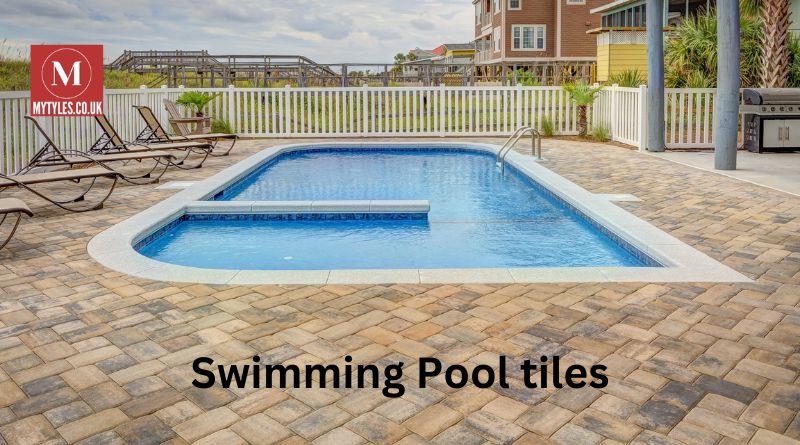Swimming pools are a symbol of luxury, relaxation, and recreation. Whether you own a private pool or manage a commercial one, the aesthetic and functionality of your pool depend significantly on one critical element: the tiles. Pool tiles play an essential role not only in enhancing the visual appeal of a swimming pool but also in maintaining its safety, hygiene, and durability. In this article, we’ll explore everything you need to know about swimming pool tiles, from the different types to how to choose the best option for your pool.
Why Are Swimming Pool Tiles Important?
Swimming pool tiles are more than just a decorative feature. They serve multiple functional purposes that ensure your pool remains a pleasant and safe environment. Here are the key reasons why swimming pool tiles are important:
- Durability: Pool tiles are exposed to water, chemicals, and sunlight constantly. High-quality tiles are designed to resist these elements and last for many years without losing their aesthetic appeal or structural integrity.
- Hygiene: The surface of pool tiles is typically smooth and non-porous, which helps prevent the growth of bacteria and algae. This is critical for maintaining the cleanliness and safety of the pool, reducing the risk of infections or illnesses.
- Safety: Swimming pool tiles also help to prevent slips and falls. Special non-slip tiles are used around the pool’s edges and on the steps, ensuring that wet surfaces don’t become hazardous.
- Aesthetic Appeal: The choice of tiles can transform the entire look of a pool. From sleek modern designs to classic mosaics, tiles allow you to create a visually stunning environment that enhances the overall atmosphere of your home or commercial space.
Types of Swimming Pool Tiles
There are several types of swimming pool tiles available in the market, each offering different benefits. When choosing tiles for your pool, it’s essential to consider not just the appearance, but also the functional aspects like water resistance, durability, and maintenance requirements. Below are the most common types of swimming pool tiles:
1. Ceramic and Porcelain Tiles
Ceramic and porcelain tiles are among the most popular choices for swimming pools. They are widely used because they are affordable, durable, and available in a wide variety of colors and designs.
- Durability: Porcelain tiles are more durable than ceramic ones and are better suited for pools that experience heavy usage or are exposed to extreme weather conditions.
- Aesthetic Variety: These tiles come in a broad range of styles, colors, and sizes. Some can even mimic the look of natural materials such as stone or wood.
- Easy Maintenance: Both ceramic and porcelain tiles are relatively easy to clean and maintain. Their smooth surface makes it difficult for algae to grow, which helps keep the pool water clean.
2. Glass Tiles
Glass tiles are known for their ability to reflect light, making them a popular choice for luxury swimming pools. They offer a shimmering effect, particularly when the water is illuminated by natural or artificial light, creating a visually stunning pool environment.
- Aesthetic Appeal: Glass tiles can be used to create intricate mosaics or sleek, modern designs. Their reflective quality adds depth and vibrancy to the pool.
- Durability: Glass tiles are highly resistant to water and chemicals, making them a durable option for both indoor and outdoor pools.
- Eco-Friendly: Many glass tiles are made from recycled materials, making them an environmentally friendly choice for eco-conscious consumers.
3. Natural Stone Tiles
For those seeking a more organic, earthy look, natural stone tiles are an excellent option. These tiles include materials like limestone, sandstone, and travertine, each offering a unique texture and appearance.
- Natural Beauty: Natural stone tiles provide a rustic, natural aesthetic that blends well with outdoor environments. Each stone has its own distinct pattern and color variation, giving your pool a one-of-a-kind look.
- Durability: While natural stone is generally durable, it is more porous than other tile materials, meaning it may require more maintenance to prevent stains and water damage.
- Slip Resistance: Stone tiles are naturally slip-resistant, making them ideal for use around pool edges and in walkways.
4. Mosaic Tiles
Mosaic tiles are small tiles that are often made of ceramic, porcelain, or glass, and are used to create intricate patterns or designs. They are a versatile option that allows for a great deal of creativity in pool design.
- Customization: Mosaics offer endless possibilities for customization, whether you’re looking for bold geometric patterns, intricate floral designs, or a unique color scheme.
- Visual Impact: These tiles can make a dramatic visual impact, especially when used to create elaborate designs on the pool floor or walls.
- Durability and Maintenance: Mosaic tiles are durable and easy to clean, making them a practical as well as a stylish choice for swimming pools.
5. Pebble Tiles
Pebble tiles are made from natural pebbles and are often used for the pool’s flooring or around its edges. They provide a textured, natural look that can be very appealing in certain settings.
- Aesthetic Appeal: Pebble tiles create a rustic, nature-inspired design that blends well with outdoor landscapes.
- Textured Surface: The textured surface of pebble tiles provides excellent traction, making them a safe option for wet areas like the pool’s edge.
- Durability: Pebble tiles are long-lasting and resistant to the wear and tear that comes from constant exposure to water and sunlight.
How to Choose the Right Swimming Pool Tiles
Choosing the right swimming pool tiles is a decision that requires careful consideration of various factors. Here’s a guide to help you make an informed choice:

1. Consider the Pool’s Design and Aesthetic
Your choice of tile should complement the overall design and aesthetic of the pool area. Think about the color scheme, textures, and patterns that will enhance the beauty of your pool. For a sleek, modern look, glass or porcelain tiles might be the best choice. For a natural, earthy feel, consider using natural stone or pebble tiles.
2. Durability and Maintenance
Different tile materials have different levels of durability and maintenance requirements. For example, glass and porcelain tiles are low-maintenance and highly durable, whereas natural stone requires more upkeep due to its porous nature. If you’re looking for a long-lasting option that’s easy to maintain, ceramic, porcelain, or glass tiles are ideal.
3. Safety Considerations
Safety is paramount when choosing pool tiles, especially around the pool’s edges and on steps. Make sure to choose tiles that are slip-resistant to prevent accidents. Many tiles are specially designed with non-slip surfaces to ensure safety in wet areas.
4. Budget
While it’s tempting to splurge on the most luxurious tiles, it’s essential to balance aesthetics with your budget. Porcelain and ceramic tiles are often more affordable than glass or natural stone tiles, and they offer excellent durability and variety. Mosaic designs, on the other hand, can be more expensive due to the intricate designs and labor involved.
5. Environmental Conditions
If your pool is outdoors, consider the weather conditions in your area. In regions with extreme heat or cold, choose tiles that can withstand temperature fluctuations without cracking or fading. Porcelain and glass tiles are excellent choices for pools exposed to the elements because they are highly resistant to temperature changes.
Maintenance and Care for Swimming Pool Tiles
Once you’ve selected your swimming pool tiles, proper maintenance is key to keeping them in good condition. Regular cleaning prevents the buildup of grime, algae, and calcium deposits that can affect both the appearance and safety of your pool. Here are a few tips for maintaining your pool tiles:
- Regular Cleaning: Use a pool brush or a soft cloth to clean the tiles regularly. A mixture of water and mild detergent works well for routine cleaning.
- Prevent Calcium Buildup: Calcium deposits can form on pool tiles, particularly in areas with hard water. To prevent this, keep the pool’s pH levels balanced and use a calcium remover as needed.
- Address Algae Growth: In humid environments, algae can grow on pool tiles. Prevent this by regularly checking the pool’s chlorine levels and using algaecides if necessary.
- Professional Inspections: Have a professional inspect your pool tiles periodically to identify any potential cracks or damage before they become serious issues.
Conclusion
Swimming pool tiles are more than just a decorative element—they are crucial for the functionality, safety, and longevity of your pool. With a wide variety of materials, styles, and designs available, it’s possible to find the perfect tile that suits both your aesthetic preferences and practical needs. Whether you’re installing a new pool or renovating an existing one, choosing the right swimming pool tiles can elevate your pool’s beauty while ensuring it remains safe and easy to maintain for years to come. By considering factors such as durability, safety, and environmental conditions, you can make an informed decision that will enhance the overall experience of your swimming pool.
Read also: check




